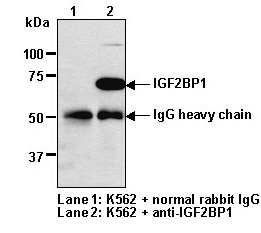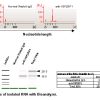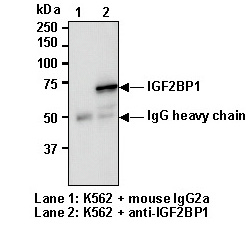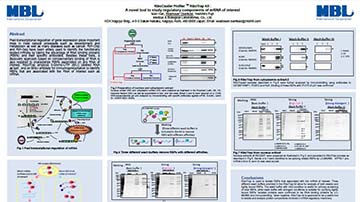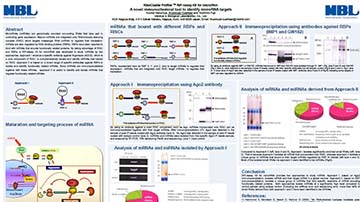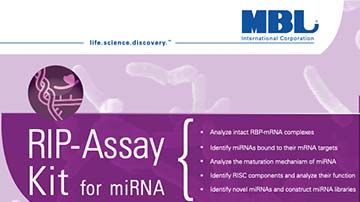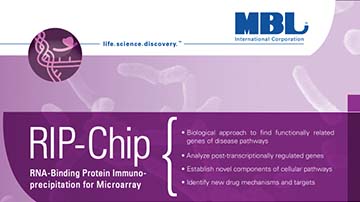Anti-IGF2BP1 (IMP1) (Human) pAb (Polyclonal Antibody)
The localization of IGF2 mRNA-binding protein 1 (IMP1) is associated with motility and the major functions of IMP1 are carried out by the phylogenetically conserved KH domains. IMP1 can affect stability, localization, and translation of its target RNAs.
Polyclonal Antibody of 200 µl targeting IGF2BP1/IMP1 for IP, RIP, WB.
| Target | IGF2BP1/IMP1 |
|---|---|
| Product Type | Antibody |
| Application | IP, RIP, WB |
| Clonality | Polyclonal |
| Conjugate | Unlabeled |
| Immunogen | Peptide bond synthesis KQQHQKGQSNQAQARRK KLH (561-577 aa) |
| Host Species | Rabbit |
| Species Reactivity | Human, Mouse |
| Formulation | 200 μl volume of PBS containing 50% glycerol, pH 7.2. No preservative is contained. |
| Research Area | Epigenetics |
| Storage Temperature | -20°C |
| Protocols | IP, RIP, WB |
| Concentration | 1 mg/mL |
| Regulatory Statement | For Research Use Only. Not for use in diagnostic procedures. |
